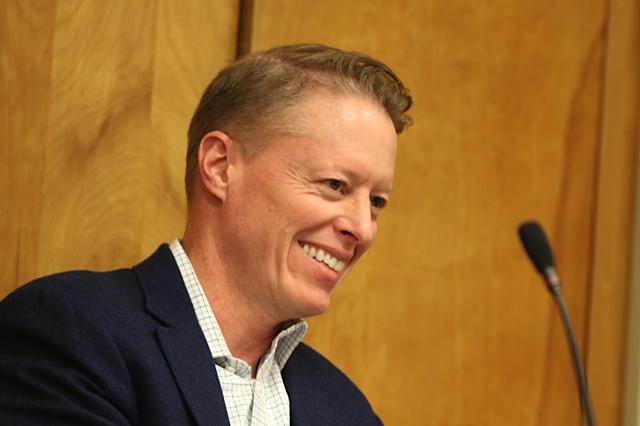The head of the Princeton Public Schools Board of Education pitched the upcoming $129.6 million facilities referendum by telling residents this week the referendum’s proposed tax hike is “not a lot of money.”
“We’ve tried to be fiscally responsible,” board President Patrick Sullivan said at a board meeting on July 17. “Yes, there are costs involved with that. You don’t get anything for free in this world, but we’ve done a pretty good job, I think, in minimizing those costs.”
The referendum, which is due to appear on the Election Day ballot on Nov. 6, would raise taxes by $289.30 starting in 2020 on a home assessed at the municipal average of $837,074.
“Speaking for myself, and I know it’s always dangerous to say something is not expensive, but a $200 cost, for my two children, is not a lot of money,” Sullivan said. “It’s just not a lot of money.”
In 2021, the tax increase will grow by nearly $83 to $372.66, according to figures shown at the meeting.
Superintendent of Schools Stephen C. Cochrane sought to expound on Sullivan’s thoughts. He said that in 2020, the cost comes out to about $34.50 per $100,000 of assessed value.
“Not everybody is living in a $1 million home, not everyone is living in the average assessed home of $837,000,” he said. “Many families are actually living well below that mean.”
The board still has to “formally vote” in early September to put the referendum on the ballot for Nov. 6, Sullivan said after the meeting.
Officials intend to have a two-question referendum in which the projects and the costs involved are split.
An $82.5 million first question would help officials meet some of their pressing needs, from building a new school for fifth- and sixth-graders to buying 15 acres of land for office space that could also be used for future needs.
A $47 million second question would pay for renovating Princeton High School.
Officials have said the first question has to be approved for the second question to have a chance of being approved. If the first question is defeated, the entire referendum would fail.
“When a district poses two questions to the public, the way the referendum works is that question two cannot pass on its own,” Scott Downie, a consultant for the district, told officials at the board meeting this week. “If question one passes and question two passes, then both can pass. If question two passes, but question one does not, then neither passes.”
The high school projects originally were going to be part of a one-question referendum in October, but officials have changed their thinking.
Last week, board member Dafna Kendal raised concerns she had about taking a “risk,” in her words, of having a single $129.6 million referendum question “because if it doesn’t pass, we have nothing and we have big problems.”
With the high school projects now in separate ballot questions, the district has to resubmit its plans for Princeton High School to the state Department of Education for review and approval, and to calculate the state aid share of reimbursement.
“That is why the date is being moved back (from October to November), because we don’t think we’ll have the approval by Aug. 2,” Kendal said on July 18.

